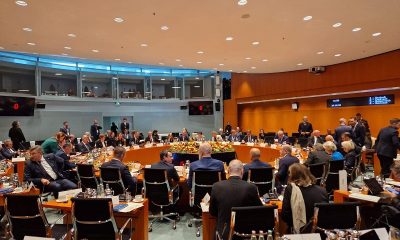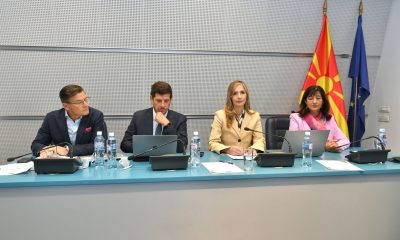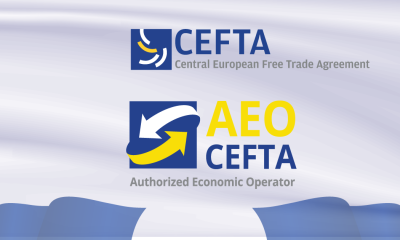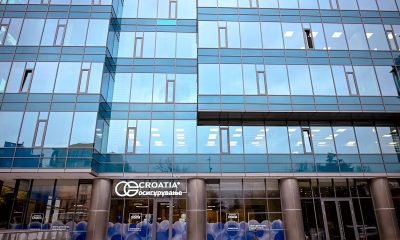Останато
ЦЕФТА препорачува мерки за поедноставување на осигурувањето за моторна одговорност кон трети лица
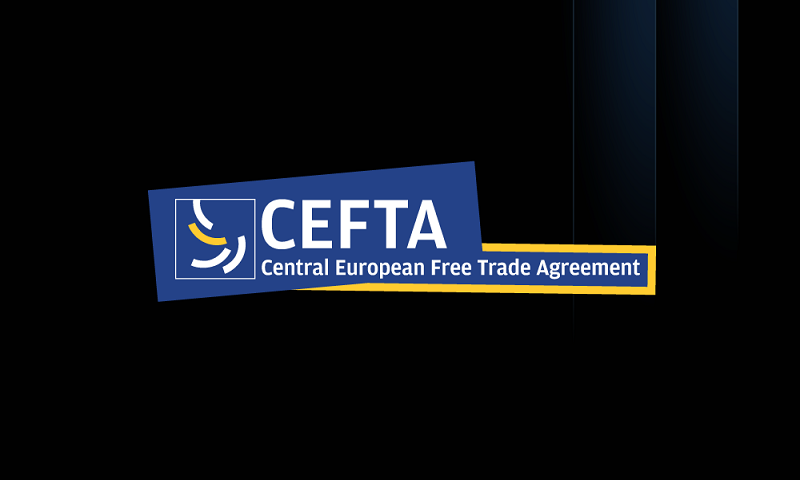
Во контекст на последните медиумски информации за осигурувањето за моторна одговорност кон трети лица (MTPL) и зелената карта, Секретаријатот на ЦЕФТА сака да обезбеди јасни и точни информации за јавноста.
На 9 октомври 2024 година, Заедничкиот комитет на ЦЕФТА ја усвои Препораката 1/2024, која на страните на ЦЕФТА им предлага мерки за олеснување на процесите за осигурување (MTPL) низ пазарите на ЦЕФТА.
Клучните мерки вклучуваат:
Конечна цел (до октомври 2026 година): Овозможување на возачите од една ЦЕФТА страна да патуваат во друга ЦЕФТА страна без да имаат потреба од зелена карта или еквивалентна документација за осигурување MTPL.
Преодна цел (до октомври 2025 година): Намалување на административните такси за добивање на зелена карта и овозможување признавање на осигурувањето MTPL врз основа на регистрационите таблици на возилата издадени од страните кои се членки на Мултилатералниот Договор.
Дополнително, Заедничкиот комитет на ЦЕФТА ги повикува страните целосно да ги дигитализираат осигурителните документи и да овозможат електронска размена на истите. Оваа дигитална транзиција има за цел да ја елиминира потребата од физички осигурителни документи при патување во рамките на ЦЕФТА.
Овие активности се засноваат на Акцискиот план за воспоставување на Заедничкиот Регионален Пазар (приоритет 3.3) и приоритетите на претседателството на ЦЕФТА за 2024 година (приоритет 2).
Извори:
ЦЕФТА, договор за слободна трговија кој ги опфаќа економиите на Западен Балкан и Молдавија, продолжува да ја поддржува регионалната интеграција и соработка. За повеќе информации, посетете ја www.cefta.int.
За да го видите комплетниот текст на Препораката 1/2024, посетете ја: Препорака на Заедничкиот комитет на ЦЕФТА.
За да го видите целосниот Акциски план за Заедничкиот Регионален Пазар 2021-2024, консултирајте се со: Акциски план на CRM 2021-24.
Целосниот текст на приоритетите на претседателството на ЦЕФТА за 2024 година е достапен овде: Приоритети на претседателството за 2024 година.
Информации за Мултилатералниот Договор може да се најдат на веб-страницата на Советот на Бироа: За Мултилатералниот Договор.
Останато
Олимпиското село останало без кондоми само неколку дена по почетокот на Зимските олимписки игри

Спортистите на Зимските олимписки игри 2026 очигледно биле прилично активни во своето слободно време во Олимпиското село, можеби и премногу активни.
Наводно се појавил недостиг на кондоми на Зимските игри во Милано-Кортина, откако спортистите земале речиси 10.000 кондоми за само три дена.
„Залихите се потрошија за само три дена“, изјавил анонимен спортист за италијанскиот весник La Stampa. „Ни ветија дека ќе пристигнат нови, но кој знае кога.“
Недостигот доаѓа откако организаторите испратија порака со цел да промовираат безбеден секс и позитивно сексуално здравје меѓу натпреварувачите.
„Здравјето е на прво место: Превенција и здрав разум“ беше слоганот користен при дистрибуцијата на кондомите, додека гувернерот на Ломбардија, Атилио Фонтана, на пакувањата го вклучи и симболот на регионот.
Сепак, залихите брзо се исцрпиле, а организаторите сè уште не се изјасниле кога повторно ќе бидат достапни нови кондоми за речиси 2.000 спортисти сместени во селата.
Како се снаоѓаат спортистите додека нетрпеливо го чекаат новото снабдување?
„Мора да ја користите фантазијата“, изјавил анонимниот спортист, додавајќи дека многумина од нив слободното време го минуваат играјќи PlayStation додека чекаат нови залихи.
Спортистите во Олимписките села кои годинава ги има шест поради географската распространетост на Игрите имаат уште една предност кога кондомите повторно ќе бидат достапни.
Креветите на овогодишните Игри се значително подобрени во споредба со претходните изданија. За време на Летните олимписки игри 2024 во Париз, креветите во собите беа изработени од картон со цел да се промовира одржливоста. На Игрите во Токио, слични кревети беа користени и како мерка за ограничување на „интимноста“ меѓу спортистите поради заканата од КОВИД-19.
Колку кондоми биле поделени на претходните Олимписки игри?
Обезбедувањето заштита за сексуално здравје одамна е практика на олимписките организатори, уште од Летните олимписки игри 1988 во Сеул.
За време на Летните олимписки игри 2024 во Париз, на спортистите им биле достапни 300.000 кондоми што всушност е помалку од 450.000 обезбедени на Игрите во Рио де Жанеиро во 2016 година.
Иако на Летните игри има приближно петпати повеќе спортисти, бројот на кондоми по лице во Милано-Кортина е значително помал. Досега, олимпијците во Италија добиле просечно по два кондоми по лице, додека во Париз бројката изнесувала околу 20 по спортист.
Со доза иронија, веста за недостигот се појави токму на Меѓународниот ден на кондомот, кој секоја година се одбележува на 13 февруари „со цел да се промовира употребата на кондоми како ефикасна мерка за спречување на непланирана бременост и намалување на преносот на сексуално преносливи инфекции, вклучително и ХИВ“.
Бизнис
Здружението на инфлуенсери го отфрла Правилникот на АВМУ и предлага Кодекс согласно европските практики

Здружението на инфлуенсери и креатори на дигитални содржини ја информира јавноста дека во целост ги отфрла Правилникот и Водичот донесени од Агенцијата за аудио и аудиовизуелни медиумски услуги (АВМУ), оценувајќи дека истите се надвор од законските рамки и не се усогласени со реалноста на дигиталниот простор.
Според ставот на инфлуенсерите, предложените акти не нудат системско решение за транспарентноста и одговорноста во интернет комуникацијата, туку отвораат простор за правна несигурност, различни толкувања и дополнителен хаос во онлајн сферата. Наместо да придонесат кон уредување на областа, тие создаваат ризик од селективна примена и ограничување на креативната слобода, без јасна законска основа и без претходна широка консултација со засегнатите страни.
Здружението нагласува дека инфлуенсерите не бегаат од одговорност, редовно плаќаат данок во Македонија, наспроти сите невистини кои се ширеа во медиумите во изминатиот период и дека ја поддржуваат потребата од транспарентност, јасно означување на комерцијалните содржини и почитување на етичките стандарди. Сепак, тие сметаат дека ваквите прашања мора да се уредуваат преку инклузивен процес и решенија што ќе бидат во согласност со законите и европските практики, а не преку акти што излегуваат надвор од утврдените надлежности.
Согласно изработената европска анализа за тоа како оваа проблематика е решена во земјите членки на Европската Унија, Здружението достави предлог до министерот за дигитална трансформација, со кое се предлага донесување Кодекс кој ќе се темели на принципите на саморегулација и ко-регулација. Во најголем дел од државите членки, прашањето на инфлуенсер маркетингот се регулира преку јасни насоки за означување на спонзорирана содржина, едукација и соработка меѓу индустријата и институциите, а не преку рестриктивни и еднострано наметнати подзаконски акти.
Предложениот Кодекс има за цел да воспостави јасни, применливи и пропорционални правила што ќе обезбедат заштита на јавниот интерес, особено на потрошувачите и малолетниците, а истовремено ќе ја почитуваат слободата на изразување и спецификите на дигиталната економија. Овој пристап, според Здружението, претставува единствен одржлив и европски усогласен модел за уредување на интернет просторот.
Здружението на инфлуенсери и креатори на содржини ги повикува институциите да го повлечат спорниот Правилник и Водич и да отпочнат отворен и транспарентен дијалог со сите релевантни чинители, со цел изнаоѓање решение кое ќе донесе правна сигурност, јасни правила и стабилна рамка за развој на дигиталната комуникација во Македонија.
Анализи
Трошоците за живот поскапени за 3,2 проценти за една година!
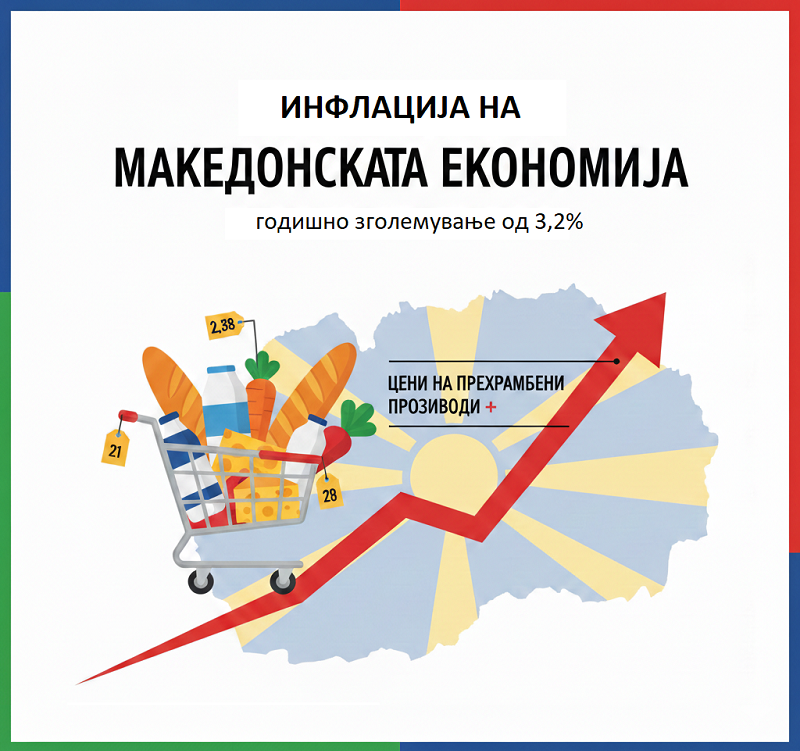
Инфлацијата мерена преку индексот на трошоците на животот во јануари 2026 година, во однос на декември 2025 година, е намалена за 0,7%, додека цените на мало бележат пад од 2,7%, покажуваат најновите податоци на Државниот завод за статистика.
На годишно ниво, трошоците на живот во јануари 2026 година во однос на јануари 2025 година бележи зголемување од 3,2 %, а индексот на цените на мало се покачил за 1,2% во споредба со јануари 2025 година.
Месечниот пад на инфлацијата е резултат на значително поевтинување кај транспортот (-9,3%), како и намалување на цените во групите информации и комуникации (-1,6%), рекреација, спорт и култура (-1,5%), облека и обувки (-1,2%) и лична нега и разновидни услуги (-0,5%).
Истовремено, зголемување на трошоците е забележано кај домувањето и енергенсите (+1%), покуќнината (+1%), рестораните и хотелските услуги (+0,7%), како и кај образованието и алкохолните пијалаци (+0,1%).
На годишна основа, најголем раст на цените е регистриран кај покуќнината и апаратите за домаќинство (5,8%), храната (5,5%) и алкохолните пијалаци (5,3%). Кај индустриските прехранбени производи цените се зголемени за 4,8%, а кај земјоделските производи за 3,2%.
Од јануари 2026 година, Државниот завод за статистика започна со примена на новата европска класификација ECOICOP 2, усогласена со стандардите на Евростат и Обединетите нации, без промени во методологијата на пресметка на индексите.
Фото: ВИ
-

 Продуктипред 2 месеци
Продуктипред 2 месециХалки картичка за деца – прва платежна картичка за деца на македонскиот пазар
-

 Интервјуапред 2 месеци
Интервјуапред 2 месециFinSight со Слободан Трендафилов (ССМ): Што ако минималната плата не се зголеми до Нова година?
-

 Интервјуапред 2 месеци
Интервјуапред 2 месециСлавески за FinSight: Пониски провизии и повеќе бесплатни услуги за граѓаните од следната година
-
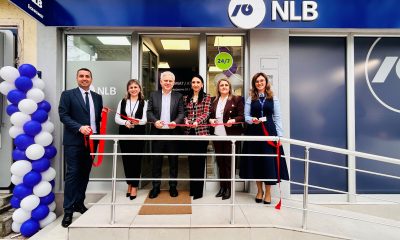
 Банкипред 2 месеци
Банкипред 2 месециНЛБ Банка ја трансформира својата продажна мрежа подготвувајќи ја за иднината – во 2025 обновени осум експозитури на Банката
-
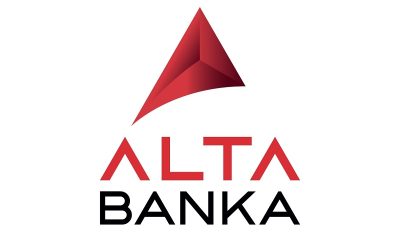
 Продуктипред 1 месец
Продуктипред 1 месецАЛТА Банка со нов потрошувачки кредит со најповолни услови на македонскиот пазар
-
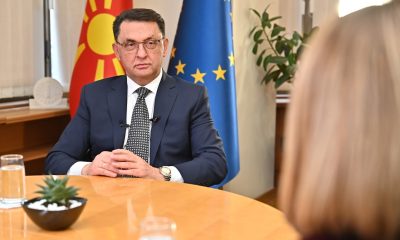
 Банкипред 2 месеци
Банкипред 2 месециГувернерот Славески: Во 2026 година се очекува забрзување на економскиот раст, со зачувување на ценовната и на стабилноста на девизниот курс
-

 Банкипред 2 месеци
Банкипред 2 месециАЛТА Банка со предвремена исплата на пензии
-

 Банкипред 2 месеци
Банкипред 2 месециГолема празнична кампања на НЛБ Банка проследена со донација












